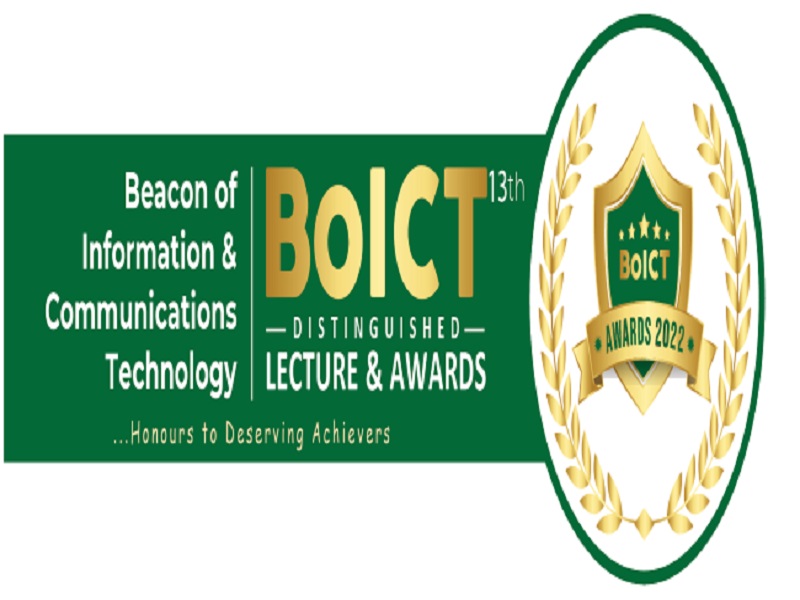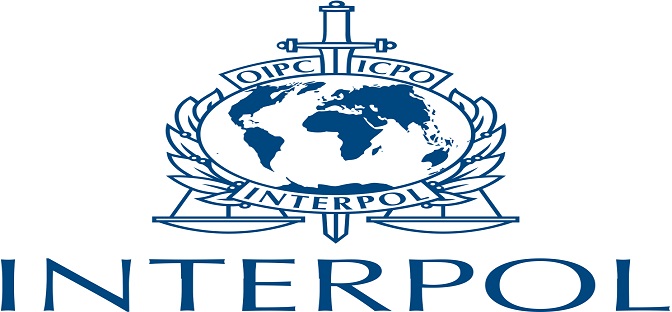News
FG to Cut Deposits in Banks over their Refusal to Lend to Nigerians

The federal government said that it might be forced to cut her deposits with Deposit Money Banks (DMBs), otherwise commercial banks in the country over their reluctance to grant loans to agricultural, mineral resources and small and medium enterprises sectors of the economy.
President Goodluck Jonathan who expressed his government’s dismay, said that banks were not doing enough to support the real sector despite the policies and other measures provided to create an enabling environment for them to thrive over the years.
The President spoke at the opening session of the 7th Annual Banking and Finance Conference of the Chartered Institute of Bankers of Nigeria (CIBN) in Abuja, Tuesday.
Represented by Dr. Yerima Ngama, minister of State for Finance, Jonathan, warned that unless they increase their funding to these critical sectors, government might be compelled to reduce their access to public sector deposits.
Public sector deposits in banks are currently estimated at about N2 trillion but the Central Bank of Nigeria’s (CBN) decision to increase their Cash Reserve Requirement (CRR) for public sector deposits to 50 per cent, as part of the monetary tightening mechanism, had already reduced public funds available to banks to trade with.
The apex bank has intervened through financial intermediation support initiatives such as the Commercial Agricultural Credit Scheme (CACS), and Nigerian Incentive-Based Risk Sharing System for Agricultural Lending, NIRSAL.
The President noted that the banks were getting money from the government at zero interest rate but continued to deny the productive sector the required funding support.
He added that if the banks failed to play their roles, the government might withdraw its deposits in the banks and use a substantial part of the fund to support the productive sector.
Describing the oil sector as external to the economy (because there is little it is drawing from Nigeria to create wealth), Jonathan expressed desire for the banks to jointly do more in agricultural lending, which he noted remained too low to achieve the Agricultural Transformation Agenda’s (ATA), goals of making Nigeria a net exporter of food and catalyst for job creation in the economy.
He said: “The banks have to come together and see how they can put funds together to really support the farmers. “The statistics we have coming from the Central Bank is that when you lend to farmers they pay you. I think we have First Bank’s experience where the percentage of the nonperforming agric loans to performing is less than 1.5 per cent.
“So, the poor actually pay their loans, but why are the banks always eager to go and lend to the riskier businesses than this safe agricultural businesses? “The issue is with our psyche, we think that maybe they are not high tech or maybe there is too much documentation based on a loan of N50,000 or N100,000.
But as a nation, you have to look at it as your responsibility. We owe this nation; we have to rise to that challenge and see that the banking sector should come together with a solution and no longer wait for the Central Bank to be coming with the solution.
“But if we want to believe that the banking sector is not innovative, that it is not ready to come with solutions and they are always looking for government and they are always looking for the Central Bank to do the magic, I am saying that time is running out and people are not patient,” the President warned.
Noting that the banks needed to do more in lending to the agricultural, solid minerals and real sector as a corporate imperative, the President said unless they played their roles in a manner that suggests their readiness to support the nation’s economic development objectives, the CBN may have to introduce new policy measures that would deny the banks continued access to government deposits.
Mr. Segun Aina, president of the CIBN, had in his remarks re-assured the government of the institute’s readiness to partner government in its various initiatives aimed at deepening banking knowledge and improving delivery of top class financial services to the economy
He expressed the hope that the conference would serve as a veritable platform for players in the industry to explore, share experiences and identify strategies to be pursued in ensuring that the financial services industry effectively plays its expected roles in supporting economic development.
News
ABoICT Lecture 2026 to Focus on Impact of AI, IoT on Business Operational Efficiency

Board and management of Communication Week Media Limited, publishers of Nigeria CommunicationsWeek, at the weekend announced that this year’s Africa’s Beacon of ICT Merit and Leadership lecture will focus on Impact of AI and IoT on business operational efficiency.

Africa’s Beacon of ICT Merit and Leadership lecture, widely regarded as the most prestigious annual event available in the ICT industry in Nigeria is in its 17th year.
The lecture holds on May 30, 2026 at Oriental Hotel Lekki, Lagos, according Ken Nwogbo, editor-in-chief of
Nigeria CommunicationsWeek the organizers of the event.
He said that this year’s event “is digital transformation edition” to recognise and celebrate organizations and individuals in the ICT industry that have impacted in digital transformation of the economy.
“Most of these organizations and individuals have consistently being voted by our readers as leaders in their areas of operations and we have decided to reward them in this special edition, tag: ‘Digital Transformation Edition 2026’ he said,”.
He added that, Digital transformation, driven by AI and IoT, will fundamentally boosts business operational efficiency by automating complex tasks, enabling real-time data analysis, and reducing costs.
“IoT technology optimizes resources, predict maintenance needs, and enhance decision- making, allowing companies to streamline workflows and improve productivity across sectors like manufacturing and logistics.
“It is an emerging technology that has impacted lifestyles and has changed the way we think and act, and the way we interact with each other.
It has also changed the way we work as it enables very large-scale monitoring, control, and automation, and has impacted the digital transformation of organizations in different industries”, he said.
According to him, “the transformative power of Artificial Intelligence exists as a bringing force in organizational communication. AI tools perform repetitive jobs, deliver simultaneous translations, and register team communication patterns, which lead to better understanding of group interactions. AI chatbots help manage customer support inquiries thus enabling staff members to dedicate their efforts toward complex work activities”.
The Africa’s Beacon of ICT Merit and Leadership Distinguished (ABoICT Lecture 2026) is designed to explore efforts to put Nigeria on the global Information and Communications Technologies map.
The lecture series however is reserved for distinguished achievers in the ICT sector.
Past lecturers included Dr. Ernest Ndukwe, then executive vice chairman, Nigeria Communications Commission (NCC); Uche Orji, managing director/chief executive officer, Nigeria Sovereign Investment Authority (NSIA); Biodu Omoniyi, Managing Director/CEO, VDT Communications; Ayotunde Coker, former Managing Director, Rack Centre Limited; Prof. Adewale Obadare, chief visionary officer, Digital Encode; Dr. Oluseyi Akindeinde, founder,
Hyperspace & NeuraL AI and John Obaro, CEO and founder of Systemspecs; Prof. Isa Pantanmi, former minister of Communications and Digital Economy; among others.
News
AI-Driven Memory Chip Fuels Global Phone Price Surge

Global technology markets are entering a new phase of strain as surging memory chip prices intensify the ongoing semiconductor shortage. For Nigeria, the ripple effects could translate into a 15 – 20 per cent increase in phone price levels if supply pressures persist into the next quarter.

While attention has largely focused on advanced AI processors, the sharpest escalation is occurring in memory chips, specifically DRAM (Dynamic Random Access Memory) and NAND (Flash Memory), which are essential to smartphones, PCs, and vehicles.
According to Bloomberg data, spot prices for DRAM have surged more than 600 percent in recent months. NAND prices have also climbed as artificial intelligence infrastructure expands global storage demand.
This shift reflects a structural realignment rather than a short-term disruption.
Massive AI infrastructure investments led by hyperscalers such as Amazon have redirected fabrication capacity toward high-bandwidth memory (HBM), a critical component for AI accelerators. This shift has tightened supply for conventional memory used in consumer devices.
Market analysts now describe the situation as a memory “supercycle,” breaking the industry’s traditional boom-and-bust pattern. Historically, memory cycles lasted three to four years. According to Jian Shi Cortesi of GAM Investment Management, the current cycle has already exceeded previous ones “both in length and magnitude,” with little evidence of demand momentum softening.
Financial markets reflect the divide. A Bloomberg gauge of global consumer electronics makers has fallen roughly 10 per cent since late September, while a basket of memory manufacturers has surged about 160 per cent over the same period. Shares of SK Hynix, a key high-bandwidth memory supplier to Nvidia, have climbed more than 150 per cent.
By contrast, downstream manufacturers reliant on affordable memory supplies are under pressure. Nintendo has warned of margin compression linked to shortages. Qualcomm shares declined after signaling memory constraints that could limit phone production. PC makers such as Lenovo and Dell have also retreated from recent peaks amid concerns that rising chip costs could dampen demand.
The divergence underscores a widening gap between component producers and device assemblers.
Memory is central to modern smartphone performance. Higher DRAM and NAND capacities power AI-enabled features, high-resolution imaging, and multitasking capabilities. Rising memory costs, therefore, feed directly into the bill of materials.
Even in a moderate demand environment, a constrained memory supply can limit production volumes. Qualcomm’s recent indication that memory shortages may restrict handset output highlights the risk of scarcity extending beyond price increases into availability challenges.
Compounding the issue, a foundry such as TSMC is prioritising higher-margin AI-related contracts at advanced nodes. Combined with the reallocation of capacity toward high-bandwidth memory, this limits flexibility in supplying traditional mobile processors and storage components.
For Nigeria, the likely outcome is not immediate widespread stockouts, but gradual upward revisions in retail pricing.
Nigeria’s electronics market remains heavily import-dependent, with minimal semiconductor manufacturing capacity. Retailers are therefore exposed to global cost shifts and supply volatility.
Distributors in major commercial hubs such as Lagos’ Computer Village are closely monitoring global trends. Some are securing inventory ahead of anticipated adjustments, while others are maintaining leaner procurement cycles to manage uncertainty.
Duration risk remains a key concern. Fidelity International’s Vivian Pai recently observed that while markets may be pricing in normalization within one to two quarters, industry tightness could persist through the rest of the year. If that proves accurate, manufacturers will have limited room to absorb higher component costs without passing them through to consumers.
Mid-tier smartphones, especially those balancing affordability with competitive performance, are likely to face the greatest pressure. Manufacturers may respond by offering lower base storage variants, delaying feature upgrades, or raising prices incrementally across product lines.
Parallel imports could increase if global scarcity intensifies, potentially raising concerns about warranty coverage and after-sales support.
Globally, firms are attempting to mitigate exposure by locking in long-term supply contracts, raising product prices, or redesigning devices to use less memory. However, semiconductor fabrication is capital-intensive and slow to scale. New fabrication plants require years to build, and expanding high-bandwidth memory output involves complex processes that cannot be rapidly accelerated.
For Nigeria, the episode underscores the importance of strengthening digital resilience. While domestic chip fabrication remains unlikely in the near term, expanding local device assembly, promoting repair ecosystems, and supporting component recycling could help cushion future supply shocks.
If projections hold, Nigerian buyers may begin seeing incremental price adjustments within weeks. Mid-range Android devices are likely to record the most noticeable changes, while premium models, already positioned at higher price points, may see more measured increases.
As it stands, AI’s explosive growth is reshaping semiconductor allocation patterns, and memory, once viewed as a product with prices that rise and fall in cycles, is behaving like a sustained constraint.
The widening gap between stock market winners and losers reflects the magnitude of this transition. As AI infrastructure spending accelerates globally, consumer electronics markets, including Nigeria’s, must adjust to a new cost environment.
Whether the squeeze proves temporary or evolves into a prolonged recalibration will depend on how quickly semiconductor capacity expands. For now, the trajectory suggests continued upward pressure on global electronics pricing, and Nigeria’s phone price expectations may have to adjust accordingly.
News
INTERPOL Arrests 651, Recovers $4.3m from Cybercrime in Nigeria, Others

African law enforcement agencies arrested 651 suspects and recovered over $4.3 million in a joint operation targeting investment fraud, mobile money scams, and fake loan applications.

As INTERPOL revealed on Wednesday, Operation Red Card 2.0 identified 1,247 victims between December 8 and January 30 while targeting cybercrime operations linked to over $45 million in financial losses.
Authorities across 16 countries also seized 2,341 devices and took down 1,442 malicious websites, domains, and servers during this joint action coordinated by the African Joint Operation against Cybercrime (AFJOC).
In Nigeria, police officers dismantled an investment fraud ring that was recruiting young people to run phishing, identity theft, and fake investment schemes, taking down over 1,000 fraudulent social media accounts in the process.
They also arrested six members of a Nigerian cybercrime gang that used stolen employee credentials to breach a major telecom provider.
Kenyan investigators also apprehended 27 suspects while investigating fraud networks that used social media and messaging platforms to lure victims into fake investment schemes.
In Côte d’Ivoire, 58 suspects were arrested as part of a crackdown on predatory mobile loan apps that targeted victims with hidden fees and abusive debt-collection practices.
“These organized cybercriminal syndicates inflict devastating financial and psychological harm on individuals, businesses and entire communities with their false promises,” said Neal Jetton, the head of INTERPOL’s Cybercrime Directorate.
“Operation Red Card highlights the importance of collaboration when combatting transnational cybercrime. I encourage all victims of cybercrime to reach out to law enforcement for help.”
One year ago, African law enforcement arrested another 306 suspects in the first stage of this INTERPOL-led operation targeting cross-border cybercriminal networks.
This is the latest INTERPOL operation targeting African cybercrime, with thousands of arrests and multiple multimillion-dollar operations disrupted or dismantled in recent years, following Operation Serengeti and Operation Africa Cyber Surge.

 Telecom3 days ago
Telecom3 days agoGroup Condemns Gabon’s Social Media Shutdown Amid Protests

 Telecom3 days ago
Telecom3 days agoIXPN Positions as the Regional Internet Exchange Hub for West Africa

 General News3 days ago
General News3 days agoHow JustMarkets Is Empowering African Traders with Global Market Access

 E-Business3 days ago
E-Business3 days agoMutual Benefits Assurance Settles ₦5.9bn Claims in January 2026

 Telecom3 days ago
Telecom3 days agoMenxtt NG Emerges as Nigeria’s Virtual IT Hub for Premium Devices, Solutions

 Broadcasting3 days ago
Broadcasting3 days agoPheelz Shares His Journey on Glo-Sponsored African Voices

 E-Business3 days ago
E-Business3 days agoNITDA DG Reaffirms FG Commitment to Responsible and Inclusive AI

 News3 days ago
News3 days agoAI-Driven Memory Chip Fuels Global Phone Price Surge


























